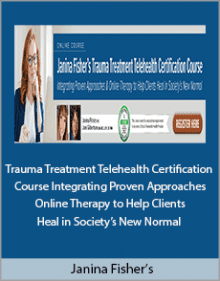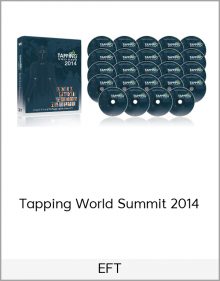
Kathryn Seifert – Children and Families with Attachment and Trauma Problems: The Latest Developmental and Systems Approaches
$219.99 Original price was: $219.99.$43.00Current price is: $43.00.
Dr. Kathy Seifert is a leading psychotherapist, author, speaker and researcher who specializes in family violence and trauma. She will provide you with the latest prevention, assessment and treatment strategies for attachment and trauma in children and families.
- Description
- Reviews (0)
- More Products
Description
Kathryn Seifert – Children and Families with Attachment and Trauma Problems: The Latest Developmental and Systems Approaches
Description
Join Dr. Kathy Seifert, one of the nation’s leading experts in the field of attachment and trauma disorders in children, and learn proven techniques you can use to help children look at their trauma with new eyes, reducing the emotional impact of the trauma in the present day. You’ll learn how to identify the outward signs of trauma and how you can use the experience of trauma to help children develop skills and feel stronger.
By completing this seminar recording you will uncover many factors that can alter the normal development of children and learn the warning signs of attachment problems. Walk away with multiple treatment options you can provide to children and their families to counteract trauma and anger in their lives.
Dr. Kathy Seifert is a leading psychotherapist, author, speaker and researcher who specializes in family violence and trauma. She will provide you with the latest prevention, assessment and treatment strategies for attachment and trauma in children and families.
Handouts
Outline
Overview
- Child Development & Attachment
- Core concepts of child development and how they are affected by trauma
- Vital functions of secure attachment
- Major symptoms of disrupted attachment
Assessment
- Children
- 6 symptom categories
- Traumatized brain
- 3 attachment patterns
- Holistic assessment practices
- Assessing development
- Parents
- Awareness of emotional and environmental triggers
- Marital relationships and co-parenting
- Parenting attitudes and competencies
- Parent mental health and stability
- Family System
- Structure—family systems work
- Ongoing patterns
- Support systems
- Stressors and stress management
Treatment
- Focus of Intervention
- Child
- Family relationships
- Community systems
- Rules, roles and boundaries
- Integration of Interventions
- Family therapy
- CBT and skill building involving parents and schools
- Longevity and relationships
- Story-telling and psycho-drama—healing trauma by changing the end of the story
- Movement and rhythm
- Building confidence and competence
- Applications
- Foster care
- Departments of Social Services and Juvenile Services
- Acute care and residential treatment programs
- Outpatient settings with multiple agency involvement
- Facilitate the Healing Process
- The trauma cycle—fight, flight and freeze
- Unfreezing
- Relaxing and reducing fear and arousal responses
- Corrective developmental experience
- Creating attachment
- Using structure attunement and empathy
- Therapeutic Methods
- 4 attachment cycles that can occur in the first year of life
- Rapport
- Commitment
- Building relationship
- Inner child metaphor
- Family systems therapy
- Building reciprocity
- Moral development
- Multimodal approaches and longevity
- Parenting
- 4 aspects of providing a secure base
- Reinterpreting child’s behavior
- Facilitating 4 competencies—knowledge, skills, judgment and self-control
- 3 steps to remaining calm and composed
- Creating a sense of belonging
- Reducing and managing family conflicts
- Creating a healing environment
Faculty
Kathryn Seifert, Ph.D
CEO and Founder
CARE2, LLC
Kathryn Seifert, Ph.D, is a psychologist in Maryland and one of the leading experts in the fields of multi-victim violence, bullying, trauma and mental health related violence in the United States. Dr. Seifert specializes in the assessment and treatment of individuals who are at risk for violence and those who are emotionally disturbed, behaviorally disordered, victimized, delinquent, and/or are suffering from attachment disorders.
Dr. Seifert has appeared on CNN, Discovery ID, and Fox News and consults with numerous public agencies. She testifies in courts as an expert on the maltreatment of children and has a blog, Stop the Cycle, on Psychologytoday.com with over a half a million readers.
Dr. Seifert has written two books, How Children Become Violent (Acanthus, 2006) and Youth Violence: Theory, Prevention, and Intervention (Springer, 2015). In these two books, she wrote about the groundbreaking research such as the ACE’s research out of the CDC, connecting child maltreatment, delays in the developmental of coping skills, and youthful violent behaviors. Dr. Seifert also developed the CARE-2, Child and Adolescent Risk/Needs Evaluation.
Speaker Disclosure:
Financial: Kathryn Seifert is the Chief Executive Officer and Founder of Eastern Shore Psychological Services; and CARE-2, LLC. She receives royalties as an author of Acanthus Publishing and Springer Publishing. Dr. Seifert receives a speaking honorarium from PESI, Inc.
Non-financial: Kathryn Seifert is a member of the American Psychological Association; and the Maryland Psychological Association. She writes a blog, Stop the Cycle, on Psychologytoday.com.
Be the first to review “Kathryn Seifert – Children and Families with Attachment and Trauma Problems: The Latest Developmental and Systems Approaches” Cancel reply
You must be logged in to post a review.
-
Gaia.com – Ben Stewart – Limitless
0 out of 5$299.00Original price was: $299.00.$42.00Current price is: $42.00. Buy now -
Kainoa Harbottle – Misbehavin
0 out of 5$24.99Original price was: $24.99.$12.00Current price is: $12.00. Buy now -
Carole Lewis – Certificate Course In Optimal Aging: Evidence-Based Interventions For Older Adults
0 out of 5$299.99Original price was: $299.99.$89.00Current price is: $89.00. Buy now -
Rick Van Ness – Where Should I Put Money
0 out of 5$15.00Original price was: $15.00.$10.00Current price is: $10.00. Buy now -
Surjeetkakkar – POS+ Hindi 30 Days Subscription
0 out of 5$180.00Original price was: $180.00.$45.00Current price is: $45.00. Buy now -
Temitope VandenBosch – Escape The Thought Spiral Course
0 out of 5$597.00Original price was: $597.00.$72.00Current price is: $72.00. Buy now




















Reviews
There are no reviews yet.